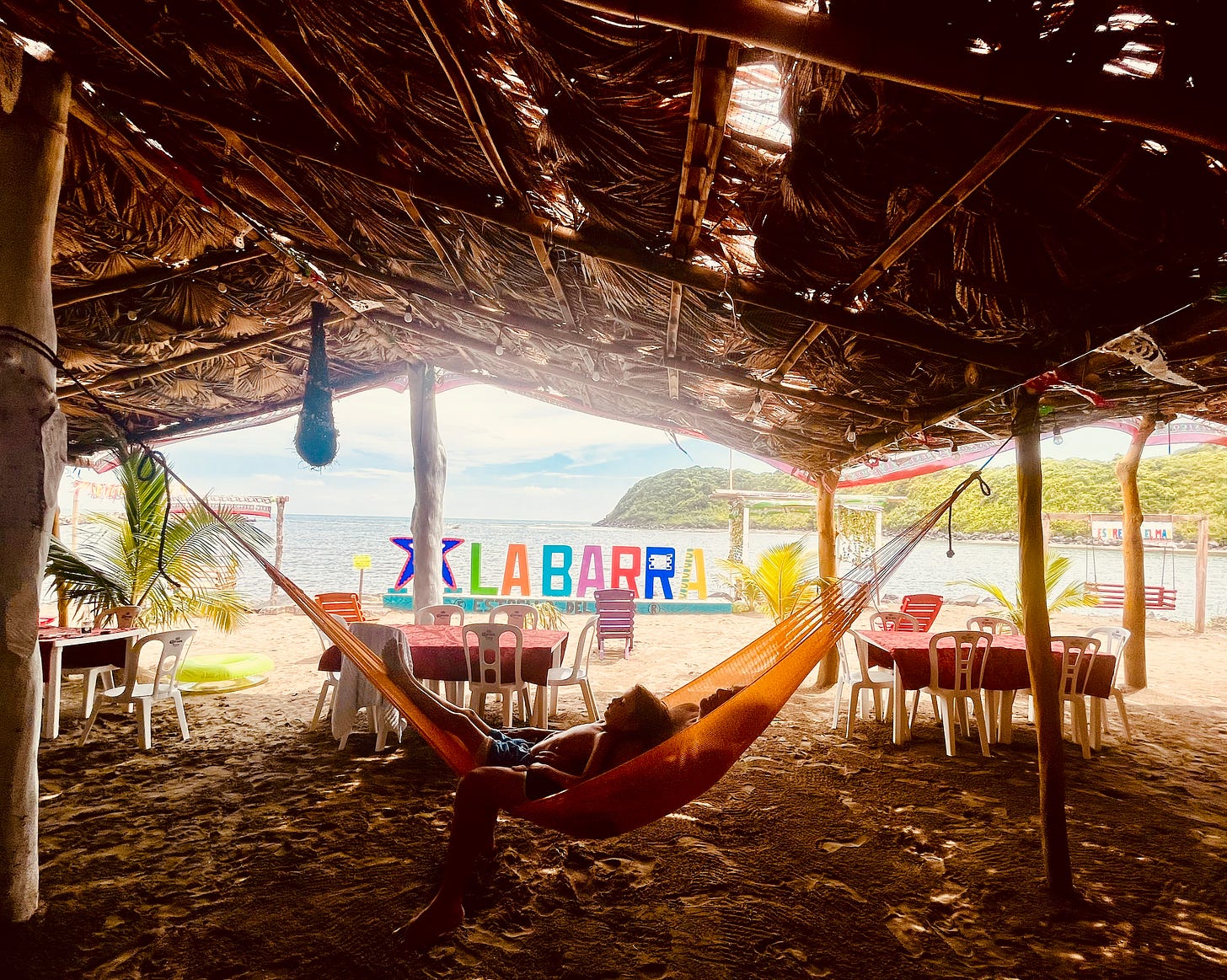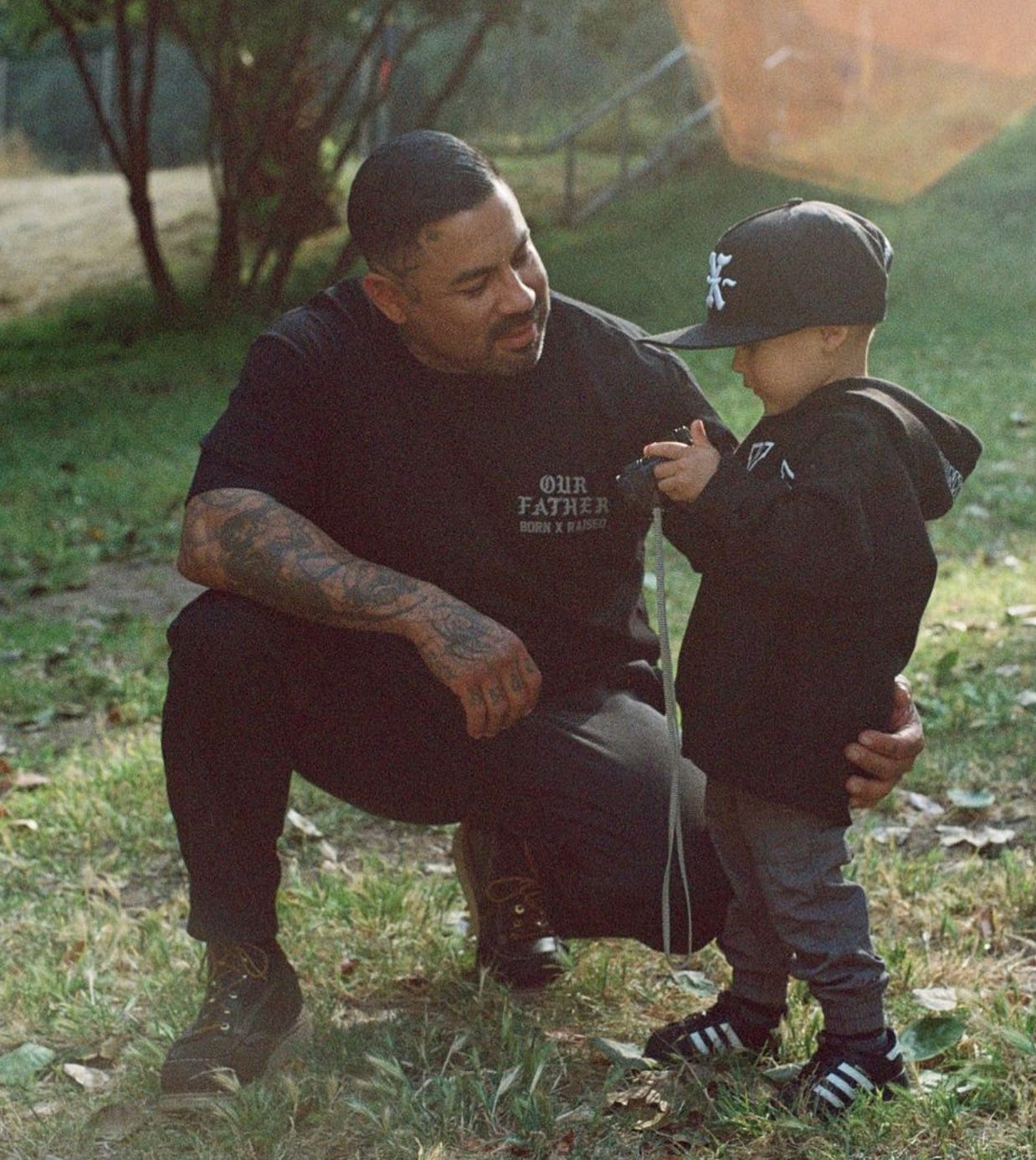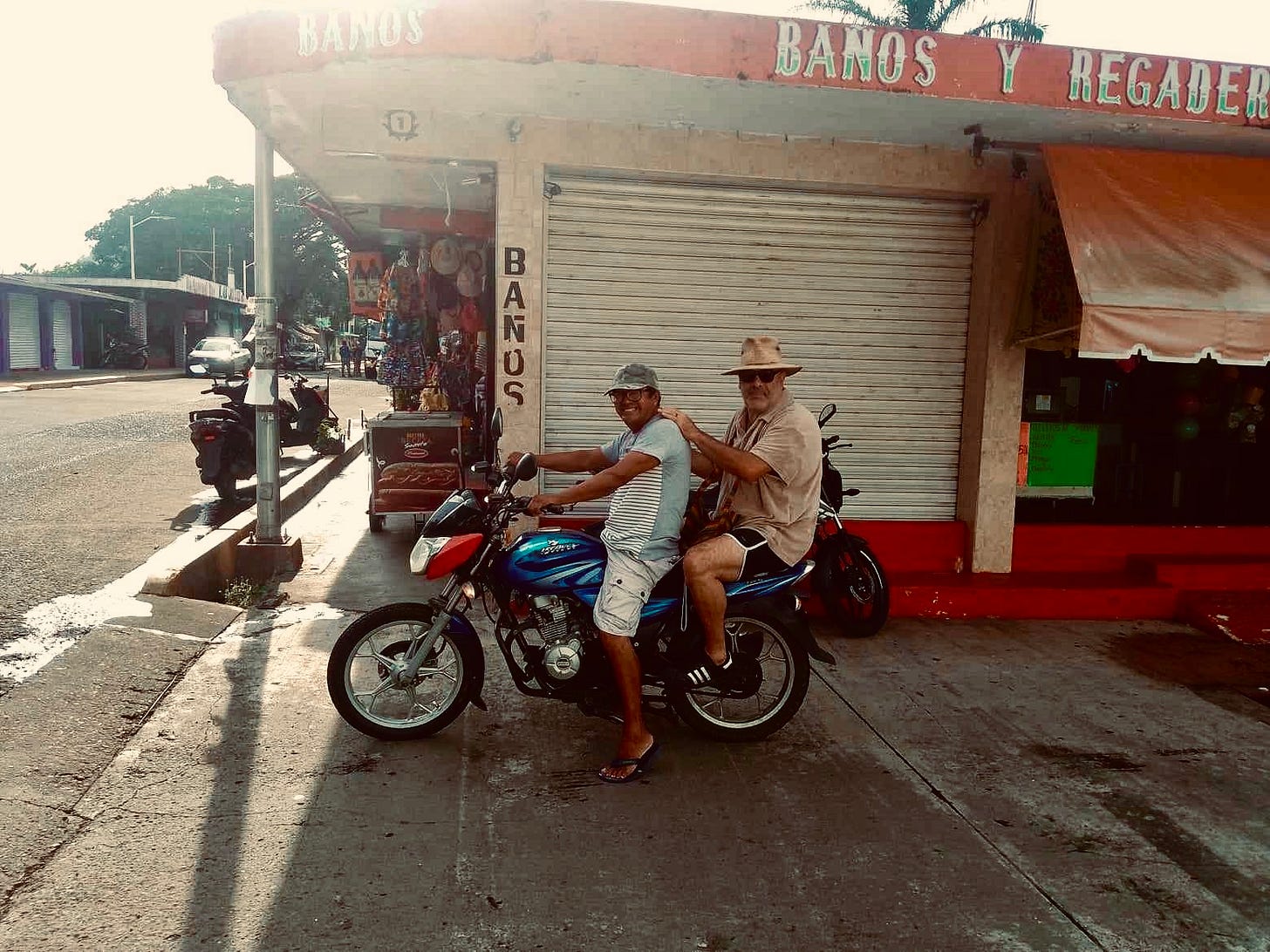A New Path to Generational Wealth: Gen Alpha on the Blockchain
By Sergio C. Muñoz at Intelatin, LLC
According to the Federal Reserve, a typical size for a Trust is $285,000 and per Fortune Magazine, “40% of Americans die with no assets at all to leave behind for their kids and grandkids.”
I thought I understood the fundamentals of financial planning and securing my family's future but when I was recently included in a relative's Trust, I realized just how little I truly understood about the complex legal web of generational wealth transfers. It will be my relative’s legacy that I learn this complexity at the age of 50 and now I am attempting to simplify it for my son later in his life.
My Trust was created by my parents with an attorney and handed to me in a thick leather-bound book. As an executive that works at a company that creates custom software for the financial industry, I wondered: Could I accomplish the task of teaching myself and my 7YO savant son how to place my Trust onto the blockchain?
For my starting point, I wondered who actually knows how to write code onto the blockchain? The answer surprised me when it came straight from the top of the (financial) mountain. On a daily basis, I read a morning newsletter from PYMNTS. On November 21, I read this post. It begins to describe, among other things, that Blackrock has a new fund on the blockchain under the ticker: $BUIDL. I followed that rabbit hole that led me to:
Sponsor: Blackrock
Custodian: Bank of New York Mellon
Domicile: British Virgin Islands
Auditor: Pricewaterhouse Coopers
Market Cap: $471M
Tokenization: Securitize
I felt like I hit the jackpot as a banker that writes on the subject of "Prosperity." Everything about the bullets above screams "Prosperity." I started to poke the tigers to see if any of them would talk to me about $BUIDL, a milestone for blockchain, giving the technology a major boost of credibility and opening the door to wider adoption—especially among Gen Alpha. More specifically:
67M Gen Alpha currently in the USA.
17.6M Latina/o Gen Alpha in the USA.
5.M Latina/o Gen Alpha in California.
2.1M Latina/o Gen Alpha in Los Angeles.
1.6M Latina/o Gen Alpha in Los Angeles of Mexican parents.
In meditation on this topic, the task of building prosperity for 1.6M Gen Alpha in the Mexican community in Los Angeles, I came across this advertisement from the brand, BornXRaised.
It seemed to me to fit the identifiers of LA > Latinos > Gen Alpha. My question was: If Blackrock is right and to be believed:
Can this child grow up to become a blockchain engineer given a focused educational program teaching coding, smart contracts, and other skills?
Just as universities played a pivotal role in cultivating technical expertise and shaping the career paths of past generations, a similar educational model focused on blockchain could have a profound impact on Gen Alpha's future.
Blackrock is one of the largest and most influential asset managers in the world and is lending its credibility and resources to blockchain-based investing through $BUIDL. This fund serves as a kind of seal of approval for blockchain technology in the eyes of mainstream investors. Additionally, as Blackrock's $BUIDL fund gains traction, it could spur other asset managers to follow suit and develop their own blockchain-based funds and investment vehicles. This proliferation of blockchain-native financial products further expands the options available to Gen Alpha, both as investors but also as engineers. Recently, Blackrock developed a collaboration with Securitize to tokenize their fund. The guru of all things computer science, Marty Chavez, declares the following about blockchain and tokenization:
"One of the most disruptive concepts enabled by blockchain technology is programmable money, which allows for tokenization and programmability around money movement. This means that conditions can be embedded in transactions, enabling if-then logic in payments."
- Marty Chavez, partner and vice chairman of Sixth Street Partners
In my deep dive into $BUIDL, I uncovered that the tokenization for this fund was being done partially in Argentina. It was then that I hit another jackpot. Francisco Flores, the Chief Financial Officer (CFO) of Securitize is Mexican and friendly enough to talk to me. Francisco seems the ideal studious child of someone. Undergrad in Economics in Mexico. Masters in Economics in England. MBA at UT Austin. Plus several post graduate certificates in both Latin America and at Harvard Business School. For the last four years, Francisco has been growing with Securitize as they raised multiple funding rounds of venture capital.
Sergio: How did you come to be such an exemplorary student in CDMX?
Francisco: My parents always encouraged me to study. In my early years, they used to look at my work and they helped me to understand the concepts. I developed an interest in school. I saw school as exciting. When I began to learn the world from an economic pointview, I was able to understand how things work.
Sergio: You were a child in CDMX when Mexico had its most volatile economic period with Salinas de Gortari and Zedillo. Did you feel that impact?
Francisco: Yes, I did. I noticed the rise in consumption during Salinas. This was when I started to be more interested in economics. My professors made many references to Zedillo and I remember the devaluation. I was in high school. Many of my classmates began to drop out because it was very difficult to continue paying for school.
Sergio: It is very rare to see young men in Mexico ladder educationally the way you did, right?
Francisco: It is not the norm to pursue graduate degrees but about 40% of my close friends in Mexico followed the same route that I did.
Sergio: Do you have an immigration story to the United States?
Francisco: My grandmother on my father’s side was American so I have always had ties with the US. I moved to Miami in 2022.
Sergio: When did you make the transition from general economics to crypto economics?
Francisco: Through my professional career, I worked in finance rather than economics. When I joined Securitize, I began following this next evolution of finance. Things are changing considerably. The underlying premises are changing but I have a good foundation.
Sergio: Since we both have children that are seven-years-old, I notice that the educational systems are not adapting to this next evolution. Do you notice the same?
Francisco: Yes, they are laggards. In my industry, there are technologies that will have a tremendous impact on the lives of our children. Like Artificial Intelligence (AI), as an example. I see that not only will they end up learning it somehow but that it probably won’t be through the traditional educational path in schools.
Sergio: The next stage of finance, the next stage of entrepreneurship, the reality of $BUIDL, all of this requires engineering. I know you have engineering teams in Spain, Israel and Argentina, I am curious how you have seen the educational paths of young Latinos in the Americas?
Francisco: It is super challenging. Nobody taught me this in business school but in my career, I have seen great pockets of engineering talent in Mexico, Guatemala, Venezuela, Brazil and Argentina. We have seen great results from our team in Argentina.
Sergio: What about Miami?
Francisco: No, the closest pocket of talent to Miami is in Atlanta.
Sergio: Latinos?
Francisco: No, general engineering talent. But in Latin America, they are developing great talent out of necessity. They are taking advantage of the internet and the democratization of knowledge. For those that want to learn, they now have that possibility without having to depend on a school system to define what they need to learn.
Sergio: Do you understand the economics of blockchain?
Francisco: The basic concepts. Underlying all businesses is the drive for profit. The blockchain provides a good solution for proof of ownership and investors really like that. And engineers are very capable of developing these smart contracts that were previously done at different parts of the chain so it is very efficient. These are the new wave of opportunities.
As we come back to Gen Alpha, let’s focus on how blockchain provides improved accessibility to financial services by lowering barriers for underbanked populations, allowing them to be able to participate. Latinos should be choking, repeat, choking, on these stats because this is one of the primary reasons for why most (Latino) Americans die with no assets:
White Americans own 89.1% of stocks with a total value of $28.17 trillion.
Black Americans only own 1.1% of stocks, worth $360 billion.
Latino Americans own 0.5% of stocks, worth $160 billion.
When are these stats going to change? Let’s look at my son, or let’s look at the little boy in the BXR ad, or let’s look at the protagonist from the film, Totem. If we agree that we all want “prosperity” for them, then at some point in the future, they need to participate in the generational wealth transfer. First as recipients and then as donors. If we agree that the future isn’t going to continue to be passed on via a leather-bound book forever, we can surrender disbelief and learn from smart-folk like Marty Chavez and Francisco Flores and decide that the blockchain is the immediate next future. Once we make that leap, then the question becomes: When?
During the school year 2024, I was fortunate to connect with an executive from Roblox. They have an Advanced Placement (AP) course that offers (1) Pro License and (1) Workshop with Resources for a teacher to prepare for the school year. To take advantage of this opportunity, the beneficiary school has to provide the teacher and the equipment (computers) and then they need to market it to the children. Although the program staff has these opportunities for K-12, all of the 20 scholarships that were awarded nationwide were focused for AP aged high-schoolers. Because I had a solid relationship with the principal of my son’s elementary school, I offered to lead the scholarship request for the school. The principal saw it as a great gift that would appeal to the children, 95% of which are Latina/os. Upon receiving our collaborative proposal, the school district rejected it outright. In a very informal, verbal rejection, they told me that they did not have the ability to protect the children on the world wide web.
According to Binance:
“Roblox has actually made many arrangements in the Web3 field, such as supporting the blockchain-driven game PlayDapp; and introducing the virtual currency Robux within the platform. David Baszucki, founder and CEO of the metaverse gaming platform Roblox, says that “75% of American teenagers aged 9-12 frequently visit Roblox, and the average time spent on the platform by 70 million active users is 2.5 hours. … Games using the [blockchain] will be more immersive and more attractive, this is inevitable."
In conclusion, I asked Dr David Hayes-Bautista about our community. He created the official reports on Latino Gross Domestic Product. He says:
“We have been releasing reports since 2015. We are the fifth largest economy in the world. That’s prosperity. There’s also health prosperity, economic prosperity. I have oodles of data at my office on the many ways that Latinos have prosperity. Latinos do things differently. Latinos have the highest rate of labor force participation. We work more than anybody else. But we have the highest level of poverty. In policy, folks think that you have poverty because you don’t work hard enough but that’s not the case with Latinos. The answer is simple: We don’t get paid for our work. We have the middle class values more than any other group. The problem is, for the last 107 years, well we don’t even need to go back that far. If you wanted to buy a house in LA prior to 1970, there would be a restrictive covenant that disallowed Jews, Asians, Blacks and Latinos from owning a property in Los Angeles. For 107 years, we were excluding from investing-in. We are now resetting the table. 90% of Latinos graduate from high school. 66% go on to college. Latino wealth has been increasing rapidly. Even during COVID. Yes, we lag in certain areas but others didn’t have to deal with restrictive covenants when we were set back in the race. We don’t need charity. As we speak, we are the best investment opportunity in this nation. We are the last best chance to drive economic growth for the United States economy in spite of 107 years of obstacles and barriers.”
Believing this, I want to run an experiment for the 1.6M Latino Gen Alpha in Los Angeles with Mexican parents. Let’s extract all the 9YOs as I see them as the perfect age. Let’s find out how many of them play with Roblox currently. Let’s do a bootcamp to teach them about compound interest using Robux. Let me raise that number from 0.5% of stocks to 20% of stocks within that sub-group. Let’s memorialize it on the blockchain as a testament to our ability as a collaborative community to contribute to our own generational wealth building.
Sergio C. Muñoz is a Mexican banker writing on Latina/o Prosperity. His work has been featured in Caló, the Los Angeles Times, the OC Register, PBS, NPR, WNYC, Revista - Harvard Review of Latin America, Studio 360, Latino Leaders Magazine, Poder Hispanic, Animal Político & ¿México Cómo Vamos?










